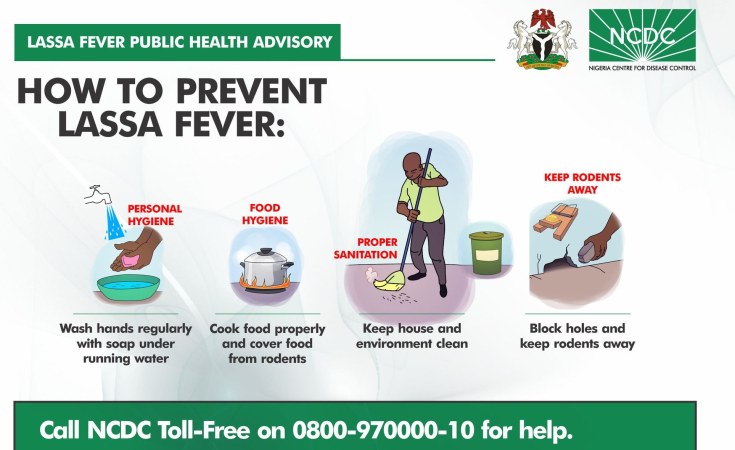NCDC added that one new healthcare worker was affected in the reporting week 13.
Nigeria has continued to experience a spread of Lassa fever, with an increase in the number of suspected cases recorded as of 2 April compared to that reported for the same period in 2022.
The latest situation report released by the Nigeria Centre for Disease Control (NCDC) Thursday shows that Nigeria has recorded 4,338 suspected cases in 2023.
According to the NCDC, from week 1 to week 13 2023, 846 confirmed infections and 148 deaths were reported with a case fatality rate (CFR) of 17.5 per cent which is lower than the CFR for the same period in 2022 (19.1 per cent).
The week 13 report, spanning 27 March to 2 April also revealed that the number of new confirmed cases decreased from 39 infections in week 12 of 2023 to 23, while the number of fatalities increased from two to four.
NCDC stated in the report that in total for 2023, "25 states have recorded at least one confirmed case across 99 Local Government Areas", of which 72 per cent of all confirmed cases were reported from Ondo, Edo and Bauchi states.
Of the 72 per cent recorded, NCDC noted that Ondo State accounted for 32 per cent, while Edo and Bauchi states reported 29 and 11 per cent respectively.
NCDC added that one new healthcare worker was affected in the reporting week 13.
Lassa fever
Lassa fever is an acute viral hemorrhagic (excessive bleeding) illness transmitted to humans through contact with food or household items contaminated by infected rodents or contaminated persons.
Its symptoms include fever, headache, sore throat, general body weakness, cough, nausea, vomiting, diarrhoea, muscle pains, chest pain, and in severe cases, unexplainable bleeding from ears, eyes, nose, mouth, and other body openings.
The NCDC noted in the report that the challenges with response to Lassa fever in the country include late presentation of cases leading to an increase in CFR, poor health-seeking behaviour due to the high cost of treatment and clinical management of the infection, poor environmental sanitation conditions, and poor awareness observed in high-burden communities.


